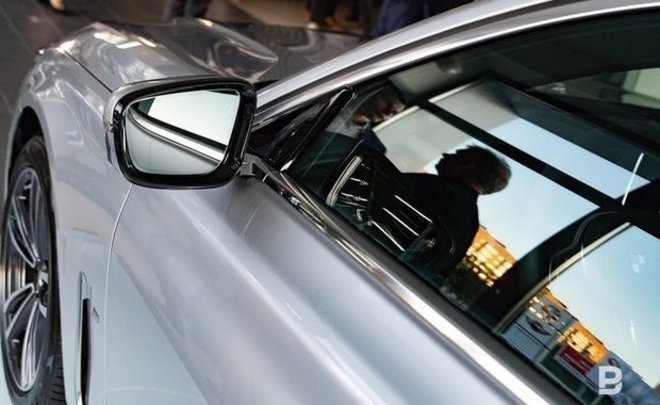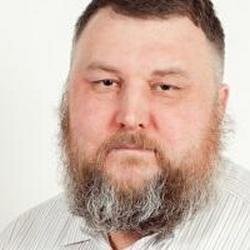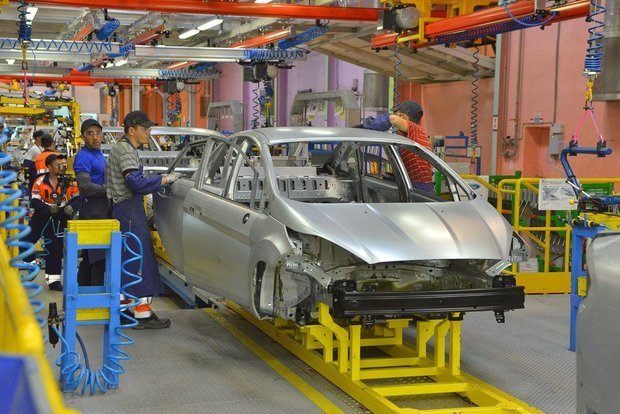Dmitry Baranov: ‘A decline in passenger car sales in the country may amount to 55-65%’
Leading expert at Finam Management company — about the situation on Russian automotive market

The Russian car market continued to fall in October, but retained the sixth place in the European superiority. The leader in the sale of cars in the EU is Germany — 208,642 units (+16,8%), the second — Great Britain with 134,344 units (+26,4%), the third — France with 124,981 units (+5,5%). Dmitry Baranov, a leading expert at Finam Management company, tells how the domestic car market and the automotive industry survive under the conditions of sanctions pressure from unfriendly countries in the author's column for Realnoe Vremya.
We are finishing the year with a decline in production and sales close to the above levels
The situation in the automotive market of the country remains one of the most difficult among other sectors of the economy, sales and production of various cars continue to decline. According to the Committee of Automakers of the Association of European Businesses (AEB) in Russia, 502,474 new passenger cars and light commercial vehicles were sold in the country in January-October 2022, which is by 60,8% less than the same period in 2021, when 1,282,074 cars were sold. According to Rosstat, 348,924 cars were produced in January-September 2022, or by 65,85% less than in January-September 2021, when 1,021,948 units were produced.

Process of “parallel” import is not fully organised
Similar estimates were called earlier. So, in the summer, speaking in the State Duma, Deputy Prime Minister and Minister of Industry of Russia Denis Manturov forecasted that by the end of 2022 the volume of production and sales of passenger cars in the country would decrease by 50%. At the current Transport Week 2022, the president of AVTOVAZ, Maksim Sokolov, said that the market of passenger cars and light commercial vehicles in the country in 2022 could be reduced by 58-60%, to 670-700 thousand cars. The decline in sales and production of cars was affected by the withdrawal of foreign automakers from Russia, the introduction of various restrictions on the supply of finished products and equipment here. The difficult situation in the economy also played a role, which affected the incomes of citizens and businesses. The fact that the process of “parallel” imports into the country has not yet been fully organised could also have affect, new automakers are not too active in the domestic market yet.
The situation in the automotive market is gradually changing, manufacturers and buyers are adapting to new conditions, but it takes time for them to be fully prepared for it. The fact that changes in the automotive industry are actively underway was discussed at a recent meeting of the Russian government, at which Minister of Industry Denis Manturov reported on the situation in the automotive industry and the automotive market. He said that, compared with June 2022, the main Russian car manufacturers are increasing the loading of conveyors, companies have managed to preserve labour collectives and competencies. According to Manturov, the production of components for cars has become more actively developed in the country, for these purposes, the Industrial Development Fund will provide preferential loans worth more than 32 billion rubles by the end of the year.

Automotive industry and demand support programmes
Despite the difficult situation, the work of the automotive industry is not limited to today, much is being done for the future. For example, the Ministry of Industry and Trade of the Russian Federation together with the NAMI automotive institute has developed the Draft Strategy for the development of the automotive industry of the Russian Federation for the period up to 2035. The required volume of investments for the period 2023-2035 in R&D and the organisation of the production of components for the production of highly localised products is estimated at 2,7 trillion rubles. Stimulating demand for products and fleet renewal programmes will require 500-600 billion rubles, the same amount will be needed to finance exports.
At the end of September, the production of electric vehicles under the Evolute brand was launched at the Motorinvest plant in Lipetsk Oblast, by the end of 2022 it is planned to produce 2 thousand cars of the following models: Evolute I-Pro sedan, I-Joy crossover, and I-Van minivan, and in 2023 it is planned to release the I-Jet cross coupe. In March 2022, the company signed Russia's first special investment contract (SPIC 2.0) for the introduction of electric vehicle production technology, which provides for the assembly of full-cycle electric vehicles with a capacity of over 100 thousand electric vehicles a year. The manufacturer's investments will exceed 13 billion rubles over the 11 years of the contract, 1,300 jobs will be created.
But the state pays attention not only to manufacturers, but also to buyers, which supports the demand for various cars. An important factor in the revival of the market, according to Denis Manturov, expressed by him at a government meeting in mid-November, was the decision to resume demand support programmes: preferential car loans, leasing and subsidising manufacturers of gas-powered vehicles. Let us remind that all models of UAZ, LADA, GAZ worth up to 2 million rubles can participate in the programmes to stimulate demand for Russian-made cars, and since September 2022 the Haval Jolion crossover produced in Tula has become a participant in the programme.
At the same meeting of the government, Denis Manturov noted that 55 thousand cars were sold in total with the involvement of state support in the amount of 15,5 billion rubles. Mr. Manturov said: “If in May 12 thousand of all types of cars were produced, from passenger cars to buses, then in October they reached 48 thousand, and this is by 19 percent more than in September. Today we can talk about the emerging trend towards the recovery of the industry.”
A decline in sales in Tatarstan is less than in Russia
The republic is an important participant in the domestic automotive market, not only in the production of cars, but also in their sale. At the end of September, Aurus Comendant SUV was presented, which will be produced in Yelabuga. Also, on the territory of Alabuga SEZ, Sollers company will organise the production of light commercial vehicles without a hood and semi-hood layout with a gross weight from 2,5 to 4,5 tonnes.
The production of cars in the republic will continue, which indicates the high competence of companies in the region, the availability of the necessary equipment, a developed transport network that gives the opportunity to deliver the necessary resources and export finished products. According to Rosstat, retail sales of passenger cars in the republic in January-June 2022 amounted to 38,581,871 rubles, or by 11,7% less than the same indicator in 2021, when they amounted to 43,692,981 rubles.
The situation with car sales in the republic is better, as there is a large selection of models here, the income situation is more stable. It is also possible that a “parallel” import of cars has been established in the republic faster, and new foreign manufacturers are showing greater interest in the region. By the end of 2022, car sales figures in the republic may decrease by 17-23% compared to the previous year, but they will not stop completely, both new and used cars will continue to be sold in the region.
Reference
The author's opinion may not coincide with the position of the editorial board of Realnoe Vremya.